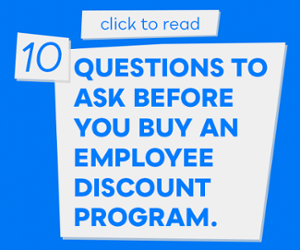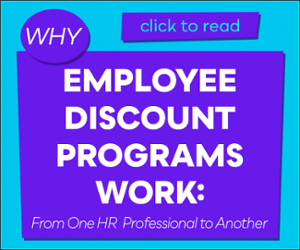Businesses are judged by the value they add to their customers. Over on our engagement and loyalty blog, we constantly reference the notion that price is irrelevant when enough value is there.
In other words, companies can charge whatever they want, so long as the customer gets more value than they feel they paid for. It's the surest, quickest way to long-term loyalty.
T hink about your smartphone. It's stinkin' expensive. Like at least $600, right? And on top of that, you pay a lot of monthly dough to a data company so you can call and text and send out cat memes from anywhere in the country.
hink about your smartphone. It's stinkin' expensive. Like at least $600, right? And on top of that, you pay a lot of monthly dough to a data company so you can call and text and send out cat memes from anywhere in the country.
You're probably like me and LOVE your smartphone.
You'll pay $600 again, even though you know it costs a tiny fraction of that to assemble the little device.
I'd probably pay twice that much for one.
Why? What makes it worth $600 (plus monthly data rates) to me and you?
Every answer will vary, but the overarching truth is you think it returns more value to you than you spend on it.
If the company makes working for them a valuable experience, they'll stick around and put forth exceptional effort.
And when they put forth that exceptional effort and achieve awesomeness, the amount of money the company pays is far outweighed by the value the employees add to the organization.
But you, the employer, have to act first. You have to create that value.
So how do you create value?
This article outlines the concept of value and the many, many ways a company can enrich their employee experience.
We think it'll open your eyes as to the many positives you can contribute to the individual lives of your employees in a way that's tangible, noticeable, and not terrible expensive.
What's the Value of Being an Employee?
What's the big takeaway people get from your company?
Is it a paycheck?
Benefits and corporate perks?
Is that it?
If those are your primary avenues to add value to employees, good luck. Those paychecks better be generous, and the perks lavish.
Like, helicopter commute lavish.
Don't misunderstand me, compensation is critical.
Think of it as one piece of the pie. It might even be the biggest. But what keeps employees performing, growing, and staying at a company isn't usually money.
Employees earn a 5.2% pay increase on average when changing jobs (Glassdoor)
If money is the top priority, company loyalty isn’t going to be a factor. You can always find more money elsewhere.
People stay because of a greater value. Compensation is just a baseline. A starting point, if you will.
Let's look at the rest of the puzzle.
The Eight Basic Elements of Employee Value

Over the last three or so years we've curated over 1,000 statistics around employee engagement and loyalty, as well as employee perks and benefits.
It's a lot of data, with a ton of conflicting bits of info to be found within. There are consistent themes, however.
When it comes to the elements that keep employees engaged, motivated, and active, nearly every single piece of data points to one of the following eight elements. In no specific order, these are where employees are perceiving value:
- Management
As managers go, so go the employees. Poor managers will spur churn like it's going out of style, while a good manager can make up for a not-so-great overall working experience.
Since management behavior tends to spread from the inside-out, this also includes executives and senior leadership.
In other words, the boss sets the tone at all levels.
Employees who are supervised by highly engaged managers are 59% more likely to be engaged (Gallup)
- Balance
Much of the population values being able to go offline when they're not on the clock. At the very least, they appreciate being able to slip out early for a kid's tee-ball game. A vacation without taking work calls or emails is also appreciated.
89% of employees said PTO influenced their employer choice and job satisfaction (TriNet)
Balance isn't just where and when we're working. It's also emotional balance and the level of stress a job spurs.
Work has always been stressful, but recent data indicates it's getting worse, and companies are starting to take proactive steps to manage it.
75% of employers ranked stress as their top health and productivity concern (Willis Towers Watson)
Flexibility also falls under this umbrella. People want to set their own hours and work from wherever they please, at least part of the time.
79% of employees with flexibility indicated that they were more happy at work (IBM)
- Recognition
People may come to work for the paycheck, but studies show that they'll run through brick walls if it means recognition.
This can come in the form of rewards, bonuses and incentives, but people are just as motivated to get a thumbs-up from the boss or an email from the CEO.
75% of employees receiving at least monthly recognition (even if informal) are satisfied with their job (BambooHR)
- Opportunity
Whether it's within your company or elsewhere, employees want to progress in their careers and move up the chain of command. They look for companies that emphasize their strengths and allow them to grow in responsibility and compensation.
Another element included in opportunity: prestige. Some people are content to say they work for a well-known company, even if they hate their actual job.
Just like an Ivy League school, companies notice big corporate names on resumes, even if the employee wasn't there for long.
54% said career advancement opportunities are more important than salary when looking for work (Achievers)
- Compensation
Salary is the major component here, but compensation goes well beyond the core paycheck. It includes benefits, employee perks and bonuses as well. Those are areas growing in importance as health coverage and financial stress loom over the typical American's head like a dark cloud.
Benefits that employees say would increase engagement and loyalty: compensation (40%), better benefits (36%), career advancement opportunities (34%), training/education (31%), coworkers they like (18%), corporate culture (18%) (Workforce 2020)
- Environment
A close relative of balance, environment is simply what life is like within the confines of your office.
Is it casual and teamwork-oriented? Loud and intense? All business, or some-business, some-play?
This element also includes things like dress code, breaks, office parties, even cubicle decorations.
Even more important than the office are the employees.
Are they friendly or combative? Engaged or disengaged?
Next to managers, co-workers may be the biggest factor in pushing employees out the door.
54% of employees say a strong sense of community (great coworkers, celebrating milestones, a common mission) kept them at a company longer than was in their best interest (Gusto)
- Contribution
Oftentimes an employee's engagement increases and decreases based on how important they perceive their role to be.
Employees who are made to feel replaceable or unimportant will respond as such. Conversely, employees who are made to feel as if they play a critical role are more likely to be engaged and satisfied with their roles.
29% of employees feel valued in their jobs (Bureau of Labor Statistics)
- Purpose
Nobody wants to work for a big evil soulless corporation.
People, particularly idealistic Millennials, want to feel good about where they work and will take less money to do so. They want to see profits going toward good causes and opportunities to volunteer.
86% of new professionals/soon to be college graduates say it’s important that the company they work for behaves in a socially responsible way (Nielsen)
(There are some other factors out of your control. Proximity from home and ease of commute, for example. If it's important to you, there are ways to address some of these within the areas mentioned above. A public transit benefit might help employees who live too far away, for example.)
Take a moment and consider how your company performs in each of these categories.
List out your specific initiatives to enhance employee value in each one.
If you find one is empty or lacking, that's a major opportunity for growth and engagement.
Even a small effort in each one can make a big difference. Don't just default to salary when looking to add more value to employees. There are much cheaper, and sometimes much more effective, ways to enhance the employee experience.
You Can’t Ace all Eight
Looking through the above factors, where is your business strong and where does it lack?
The goal isn't perfection across all of the categories, necessarily. No company can score a perfect 100% on every possible factor.
You want to do well in each of them, but find the right mix that works for the company you want to have.
In other words, what matches your culture, and the culture you're trying to cultivate?
As you emphasize one area, others may become less important.
For example, a business that values giving back to the community may not be as competitive in compensation, but idea-driven employees may not mind.
An office with great management and environment can get by without as much opportunity for advancement.

If your management team runs around in panda costumes smashing keyboards, then you really need great compensation.
That being said, push for excellence in every category. Pay people fairly, give them the chance to grow, surround them with other great people and give them the resources and environment to do awesome things that serve a greater cause.
It sure sounds easy, right?
Value is all about finding the balance between culture and employees who fit.
And no, it isn't easy.
And it won't work for everyone.
Employees will always churn, and you'll still have to give some of them the boot.
But put enough value in place, and most of them will stay.
Then, they'll add enough value back to the company that the price you pay for them is irrelevant.
Just like the smartphone in your pocket (or in your hand) right this second.





